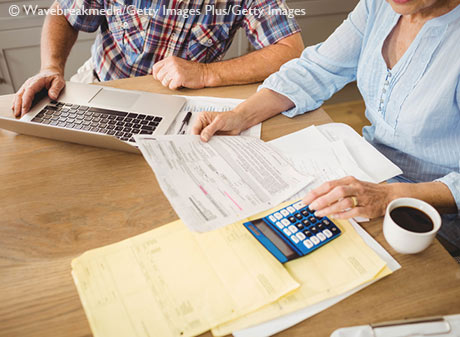The Effects of Uncertainty on Economic Outcomes

How does uncertainty affect the economy? The authors of an Economic Synopses essay examined this question, and their findings support the view that firms and households delay spending when uncertainty increases.
The essay was written by Laura E. Jackson, an assistant professor at Bentley University; Kevin L. Kliesen, a business economist and research officer at the St. Louis Fed; and Michael T. Owyang, an economist and assistant vice president at the St. Louis Fed.
How Uncertainty Has an Impact
“A rise in uncertainty is widely believed to have detrimental effects on macroeconomic, microeconomic, and financial market outcomes and induce responses from monetary, fiscal, and regulatory policymakers,” they wrote.
Theoretical models suggest that rising uncertainty can affect economic activity and decision-making in various ways, the authors explained. In particular, they noted:
- Firms may delay investment and hiring.
- Households may reduce spending by increasing their saving rates if they anticipate possible changes in their income or wealth.
- Financing costs may rise if risk premiums increase.
Effects on Key Economic Variables
Most researchers find that uncertainty shocks—or unexpected increases in uncertainty—reduce economic activity, raise unemployment and reduce inflation for several months after the shock, the authors pointed out.
In their own analysis, which was based on a 2018 working paper they wrote, the authors examined how uncertainty shocks affect variables such as consumer spending on durable goods and businesses’ investment in equipment and other fixed assets.Jackson, Laura E.; Kliesen, Kevin L.; and Owyang, Michael T. “The Nonlinear Effects of Uncertainty Shocks.” Working Paper 2018-035A, Federal Reserve Bank of St. Louis, November 2018.
For their uncertainty measure, they used the Index of Economic Policy Uncertainty (EPU) developed by Scott Baker, Nicholas Bloom and Steven Davis. Baker, Scott R.; Bloom, Nicholas; and Davis, Steven J. “Measuring Economic Policy Uncertainty.” Quarterly Journal of Economics, November 2016, Vol. 131, Issue 4, pp. 1593-1636. Jackson, Kliesen and Owyang identified and studied shocks that pushed the EPU above the largest value it had reached over the previous four quarters.
After uncertainty shocks, contractions in investment and consumption contribute substantially to slower growth of real GDP, the authors said.
“In particular, business fixed investment and durables consumption exhibit deep, persistent contractions in growth in uncertain environments,” they wrote.
“Our findings thus support the view that firms and households delay expenditure when faced with spikes in uncertainty,” they concluded. “On the bright side, we also find evidence that monetary policy can help mitigate the adverse effects of uncertainty shocks.”
Notes and References
1 Jackson, Laura E.; Kliesen, Kevin L.; and Owyang, Michael T. “The Nonlinear Effects of Uncertainty Shocks.” Working Paper 2018-035A, Federal Reserve Bank of St. Louis, November 2018.
2 Baker, Scott R.; Bloom, Nicholas; and Davis, Steven J. “Measuring Economic Policy Uncertainty.” Quarterly Journal of Economics, November 2016, Vol. 131, Issue 4, pp. 1593-1636.
Additional Resources
- Economic Synopses: A Bad Moon Rising? Uncertainty Shocks and Economic Outcomes
- On the Economy: Does the Macroeconomy Float in Choppy Waters?
- Working Paper: The Nonlinear Effects of Uncertainty Shocks
Citation
ldquoThe Effects of Uncertainty on Economic Outcomes ,rdquo St. Louis Fed On the Economy, July 9, 2019.
This blog offers commentary, analysis and data from our economists and experts. Views expressed are not necessarily those of the St. Louis Fed or Federal Reserve System.
Email Us
All other blog-related questions

